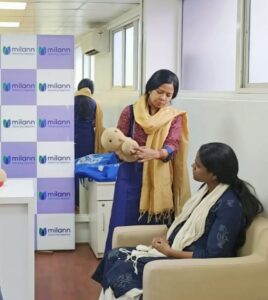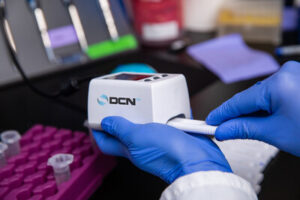NUH LAUNCHES NEW DIGESTIVE CENTRE TO PUSH NEW FRONTIERS IN EARLY CANCER DETECTION AND CARE EXCELLENCE

The team behind the launch of the National University Centre for Digestive Health
The National University Hospital (NUH) is embarking on a major initiative to establish the National University Centre for Digestive Health, slated for completion in the first half of 2025. With a vision to be the region’s leading academic centre for digestive health, the Centre will pioneer research, innovations and clinical practices with an amplified focus to elevate the standards of early disease detection, precise diagnosis, treatment and prevention of digestive illnesses.
Through the integration of artificial intelligence (AI) and advanced technology, the new Centre will serve as a comprehensive one-stop centre for gastroenterology and hepatology services, catering to the growing needs of patients with stomach, colon and liver-related diseases, including cancers.
Gastrointestinal cancers and liver cancer rank among the leading causes of cancer-related deaths in Singapore. It was reported by the Singapore Cancer Registry Annual Report 2021 that gastrointestinal cancers made up one-third of cancer cases in males and approximately one-fifth of the cases in females[1].
Harnessing the power of AI and technology
The establishment of the National University Centre for Digestive Health heralds a new approach where specialised care, from radiology and diagnostics to surgery and therapeutic procedures, is significantly enhanced by AI and technology. This advancement not only promises streamlined patient services, but also ensures early detection and more effective intervention strategies, thanks to same-day diagnostics and treatment capabilities.
The Centre is currently the only one in Singapore to put in place three AI-enabled systems, known as the Computer-assisted detection (CADe), Computer-assisted diagnosis (CADx) and Computer-assisted quality control (CAQ), which work in tandem to not only identify early gastrointestinal lesions more effectively, but also enable the real-time cancer diagnosis of these lesions. This can translate to earlier treatments or follow-up interventions for patients identified with high-risk lesions, potentially leading to improved prognosis and treatment outcomes.
Early gastrointestinal lesions, which are abnormal changes involving the tissues in the stomach area, may be indicative of cancer. As such, early detection and diagnosis are crucial for better prognosis and lay a strong foundation for successful treatment and recovery.
The Centre is pioneering the development of a more accurate blood-based diagnostic test for stomach cancer. The test will better identify individuals at high-risk of stomach cancer, potentially reducing the necessity for invasive endoscopy in low-risk cases. The team is also developing novel biomarkers to improve the precision of early colorectal cancer detection, as well as new pancreas and liver cancer assays.
Adjunct A/Prof Lee Guan Huei, Head and Senior Consultant, Division of Gastroenterology and Hepatology, Department of Medicine, NUH said: “At the forefront of our mission within the National University Centre for Digestive Health is the fusion of AI and advanced technologies with deep clinical expertise. This signifies our commitment to innovation as well as our dedication to offering our patients the best experience and most advanced care options possible.”








